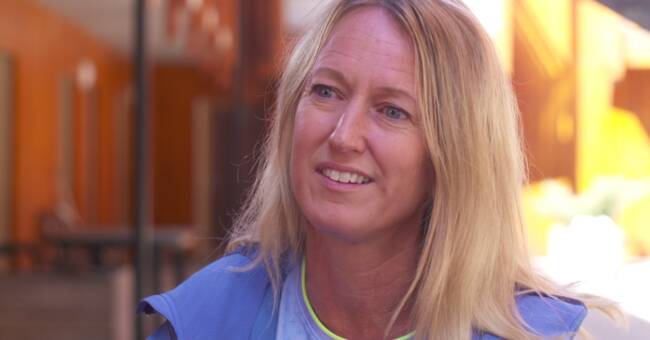Linda Bakkman, who is a nutritional physiologist and works for the Swedish Olympic Committee, describes that low energy availability among endurance athletes at the elite level is common, but that it is important to distinguish between energy deficiency and eating disorders.
- The literature from Sweden and the Nordic countries shows - in the groups surveyed - that it is between 50-70 percent who have low energy availability.
And it is not so common at all with an eating disorder, which is a sign in itself that it is not the same thing, says Linda Bakkman.
- There can definitely be an eating disorder that explains a low energy availability, but everyone who has a low energy availability does not have an eating disorder, far from it, she says.
If you do not get enough energy, it can be due to many different things and it is important to find out why so you can take the right measures.
Javascript is disabled
Javascript must be turned on to play video
Read more about browser support
The browser is not supported
SVT does not support playback in your browser.
We therefore recommend that you switch to a different browser.
Read more about browser support
Three questions: What is energy shortage among elite athletes?
"Awareness must be raised"
Is the knowledge about energy shortages sufficient in sports Sweden?
- I absolutely think it can get better.
But it's moving forward.
Previously, the image was that low energy availability was synonymous with eating disorders.
Today, many more people understand that this does not have to be the case.
More people are paying more attention to the signals.
But awareness must definitely be raised.
It must be raised at a young age and among coaches and coaches.
But Linda Bakkman also sees positive signals.
- Today there is a broader picture of the elite athlete.
It is no longer an equally narrow image around a certain body type.
Power is emphasized much more clearly now, which is positive to counteract the image that can be found that endurance athletes should weigh less, she says.
The dietary advice aimed at the common man does not apply to training young people
Linda Bakkman emphasizes that we are constantly fed by a message about how we should eat in order to be healthy, but that that message must be individually adapted.
- The dietary advice that is aimed at the general population to counteract obesity, the dietary advice is not intended for growing and training young people, or elite and sub-elite groups.
For them, there are completely different energy and nutritional requirements and a different definition of what is useful.
We must become better at emphasizing this, she emphasizes.
Watch the entire series "Hanna Öberg - to suffer from energy deficiency" on SVT Play.

